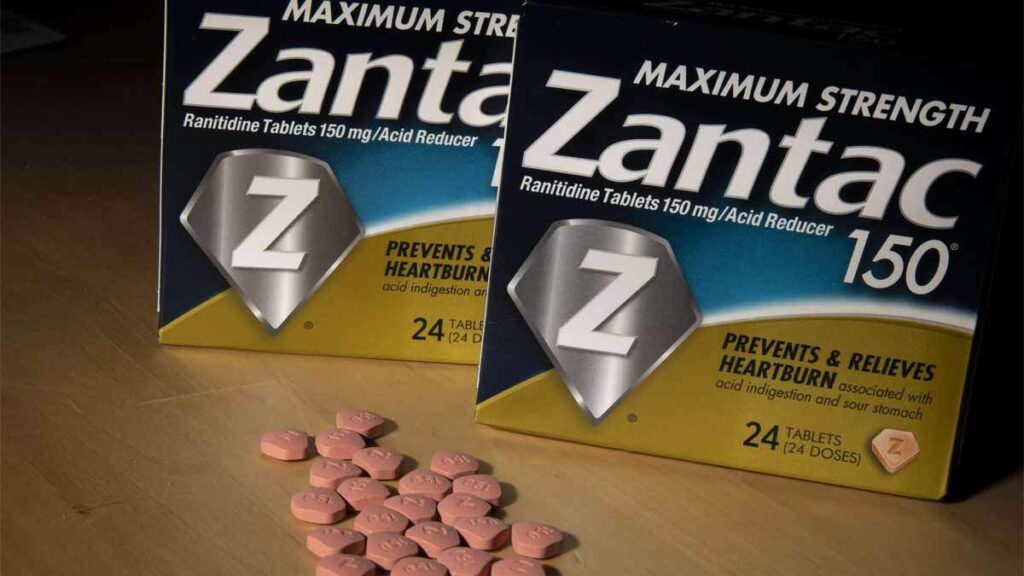
You have probably heard of the medication called Zantac before. It has been on the market for multiple decades. Zantac has been in the news a lot, and for all the wrong reasons.
The reason why this medication is getting attention is that doctors feel that it might cause cancer. That’s troubling, especially if you are one of the individuals who has taken the drug in your life.
If you’re wondering what is going on with Zantac and how it might affect you, we’ll cover all of that right now.
The FDA Recall
The FDA announced recently they were recalling Zantac, effective immediately. Zantac is an over-the-counter heartburn medication that’s supposed to give you relief if you have symptoms. Many people deal with heartburn at some point in their lives, so this news has been all over TV.
In 2019, the FDA began paying attention to Zantac because they started hearing that it might have trace amounts of cancer-causing agents. At the time, they didn’t do a recall because they didn’t find anything they felt was conclusive.
More recently, they think they’ve found sufficient evidence that cancer-causing agents exist in Zantac. They decided to recall it and started telling anyone who still has some to stop taking it immediately.
If you have Zantac sitting in your medicine cabinet at home, now would be the time to throw it away. The FDA is a watchdog agency that has spent years building public trust, and you should do as they say.
What Happens Now?
Ranitidine is the ingredient in Zantac that has the FDA worried. There is also a carcinogen in Zantac called NDMA. High-temperature storage can increase this drug’s danger over time.
If you have Zantac sitting in a medicine cabinet, for instance, and your home gets hot in the summer, that could make the drug more dangerous. That’s not something the manufacturers knew when they started making it, and they have only recently made that connection.
There are additional drugs on the market that have similar acid reflux and heartburn-fighting agents, such as Prilosec and Nexium. The FDA says those are okay since they don’t have the troubling ingredients.
As for anyone who has received a cancer diagnosis who took Zantac regularly, you have a legitimate legal cause to go after the manufacturer in court. You are well within your rights to contact a lawyer and talk to them about all this.
What Kinds of Cancers Might This Drug Have Caused?
There’s no guarantee that just because you got a cancer diagnosis, Zantac is to blame. If you have been taking it regularly, though, it’s possible there could be a connection.
There are several cancers that the FDA and doctors have potentially linked to Zantac. They include breast, liver, kidney, lung, pancreatic, prostate, stomach, and more.
The real issue if you decide to hire a lawyer and take the case to court is proving that the Zantac caused your particular cancer variety. That can be tricky, but you can leave that up to your attorney.
They will attempt to prove that the product was defective and that it harmed you. This is what the legal system calls a product liability lawsuit. It’s possible that you might be able to become part of a class-action lawsuit since there are potentially millions of people who took Zantac and then received a cancer diagnosis.
Some of them may even have died, and in that case, their families might sue the Zantac manufacturers on their behalf. If someone in your family died from cancer and was a regular Zantac user, talk to a lawyer about that as well.
Will You Win Your Lawsuit?
You might wonder if it’s worth it to pursue a lawsuit if you’re in one of the situations we’ve described. It might very well be worth it for the following reason.
With product liability lawsuits, you often have to prove that the manufacturer knew about a potential danger but continued making the product anyway. It seems likely that at a certain point, Zantac’s manufacturer did indeed understand that the product was dangerous.
They knew an active ingredient could cause cancer, but the product was so successful they kept on making it. That’s reckless endangerment, and if your lawyer can prove that in court, you can cash in. It won’t make up for a cancer diagnosis, but at least you can collect money to help pay medical bills and for your pain and suffering.








